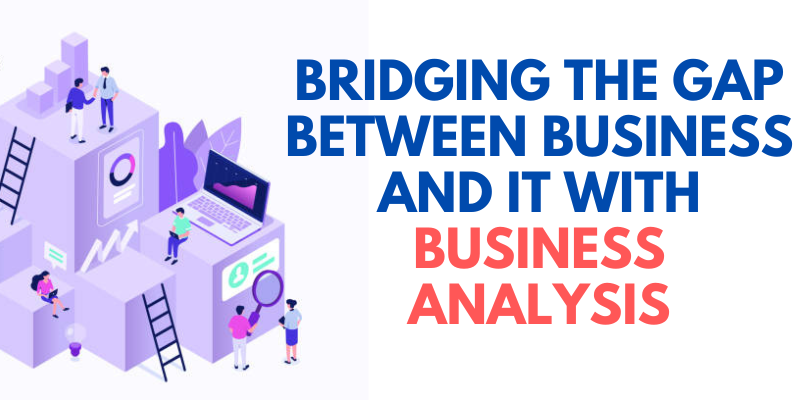In today’s fast-paced digital age, the collaboration between business and information technology (IT) has become more crucial. Businesses must adapt to technological advancements to stay competitive, and IT departments need to align their efforts with the organisation’s strategic goals. Business Analysis (BA) plays a pivotal role in bridging the gap between business and IT. This blog explores the significance of BA in harmonising the two worlds and highlights its benefits in achieving organisational success.
Understanding Business Analysis
Business Analysis is a discipline that focuses on identifying business needs, defining solutions, and facilitating communication between stakeholders. It acts as a bridge between business stakeholders and IT professionals, serving as a critical component of the business ecosystem. MBA Business Analytics, a specialised program offered by many prestigious institutions, recognises the paramount importance of Business Analysis in today’s data-driven world. BAs are responsible for analysing processes, gathering requirements, and ensuring that IT solutions meet the business objectives, making them critical contributors to MBA Business Analytics. Their ability to translate business needs into actionable insights is highly valued in this program and aligns perfectly with the evolving business and technology landscape.
Why the Gap Exists
The gap between business and IT often arises due to differences in language, priorities, and objectives. Business leaders are concerned with profitability, growth, and market share, while IT professionals focus on technical feasibility and system stability. These disparities can lead to miscommunication, misunderstandings, and project failures.
The Role of Business Analysts
Business Analysts act as intermediaries who translate business requirements into technical specifications. They understand the needs of both sides and facilitate effective communication. BAs bridge the gap by:
Gathering and Clarifying Requirements
Business Analysts work closely with stakeholders to elicit, document, and prioritise requirements. They ensure that IT solutions align with the business goals.
Creating a Common Language
BAs translate technical jargon into terms that business stakeholders can understand and vice versa. This helps in aligning expectations and reducing misunderstandings.
Facilitating Change Management
When implementing IT solutions, BAs assist in managing the transition within the organisation. They ensure that employees are prepared for the changes and can adapt smoothly.
Maximising ROI
Business Analysts help identify opportunities for process improvement and optimisation. This can result in cost savings and higher income, which aligns with corporate goals.
Quality Assurance
BAs are critical in ensuring the final IT solutions meet the specified requirements and quality standards. They act as advocates for both business and IT.
Benefits of Embracing Business Analysis
Embracing BA practices can yield numerous benefits:
Improved Communication
Effective communication between business and IT leads to better collaboration and a shared project vision.
Cost Savings
BA helps identify inefficiencies and areas for improvement, ultimately reducing operational costs.
Higher ROI
IT solutions aligned with business objectives will likely generate a more significant ROI.
Reduced Risk
BA mitigates risks by ensuring that requirements are well-defined and understood by all stakeholders.
Conclusion
The divide between business and IT may hinder an organisation’s capacity to innovate and compete in the digital era, particularly in a fast-paced city like Chennai, recognised for its flourishing business ecosystem. Business Analysis acts as a bridge, bridging these two worlds by facilitating effective communication, ensuring that IT solutions align with business needs, and driving positive organisational change. This is particularly significant in the context of MBA Business Analytics In Chennai, where there is a growing demand for talented experts who can bridge the gap between data-driven ideas and business strategy.



